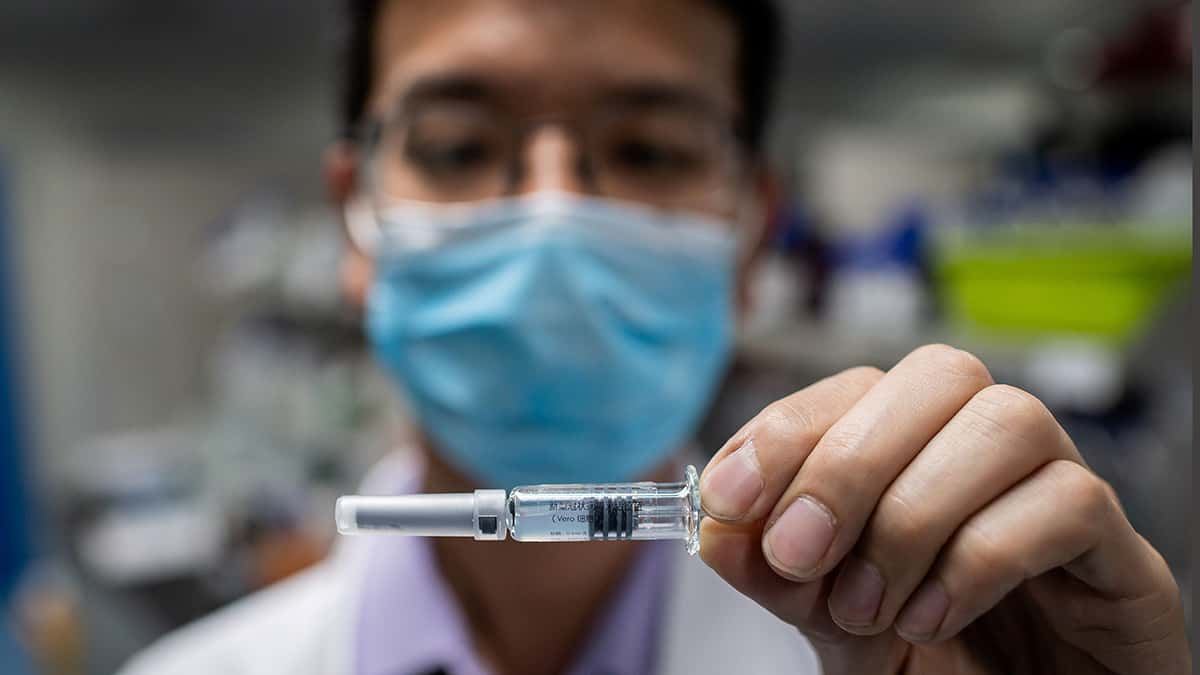
Work is underway for members of Rochester Regional Health and UR Medicine hoping to help develop a COVID-19 vaccine.
The healthcare organizations have worked on recruiting dozens of people from out area to take part in a new clinical trial in partnership with BioNTech and Pfizer.
Testing is now underway at Rochester General Hospital. Researchers say the goal is to potentially have a vaccine ready for emergency use by the year’s end.
The study, which consists of multiple visits over a two-year period, is focusing on how participants’ immune systems respond to proteins being used in other vaccines to prevent flu spread.
MORE: Volunteers needed in Rochester for experimental COVID-19 vaccine trial
Rochester is one of four sites chosen in the U.S. for the study. Clinical trials for the same vaccine are also taking part in Germany.
“As anxious as we are all for a vaccine, this study is being structured very carefully to proceed with cautious, looking at safety and starting in younger folks and moving up in the age spectrum. We want to get the best scientific data but protect our individual subjects,” said Dr. Ann Falsey, co-director of the URMC Vaccine and Treatment Evaluation Unit.
Dr. Edward Walsh of Rochester General Hospital said there are two variations of the vaccine in this particular trial – one in NYU & Maryland, one in Cincinnati & Rochester.
The current study in Rochester involves about 40 participants, making it a “phase one” study due to its small sample size. Participants will be monitored for an initial period of 6-8 weeks, during which data will be assessed. A decision will be made, likely in late July, about whether the study will proceed to a slightly more expanded second phase, which would add more participants to the study.
“We very much do not want individuals in our [phase one] study to expose themselves to the virus,” Dr. Walsh said. “So we very specifically are recruiting people for this phase one study who have a low likelihood of becoming infected.”
The reasoning is that researchers want to make sure study participants’ immune systems are responding to the vaccine and not from contracting the virus from an outside source. From there, according to Dr. Walsh, they can decide on whether to proceed to a phase two study.
If the second phase of the study is approved and it also goes well, a third phase would vaccinate even more people – creating placebo and vaccinated groups who would be studied in a day-to-day regular life setting.
“We have this window of time when the vast majority of people…have not yet become infected,” Dr Walsh said. “So we’d like to get a vaccine developed before the majority of people become infected. Because once that happens, the value and the utility of the vaccine will be diminished on a population basis.”
Rebecca Timmons, one of the participants in the study, said she decided to sign up for the study for a variety of reasons, including helping her friends and family members who are immunocompromised.
“I have a 96-year-old grandfather,” Timmons said. “I have not been able to hug him in three months, nor has anyone else in my family. So that’s another reason I would like to be a part of this and be able to get back to seeing him.”
When Timmons first started telling her family and friends about joining the study, she said she was met with some surprise.
“Some were concerned, but I think most of them have been very supportive,” Timmons said. “I’ve gotten a lot of ‘Thank yous’ for putting myself out there for science.”
Timmons said she was given the first dose of the vaccine on Thursday after her COVID-19 test came back negative. She described it as being about the same as a flu shot. She has been instructed to keep an electronic diary for two weeks in which she will be tracking her temperature and symptoms that she’s experiencing, as well as any potential redness or swelling at the injection site on her arm.
Two weeks after the first vaccine dose, patients will come back for a second and final dose of the vaccine.
— 13 WHAM


